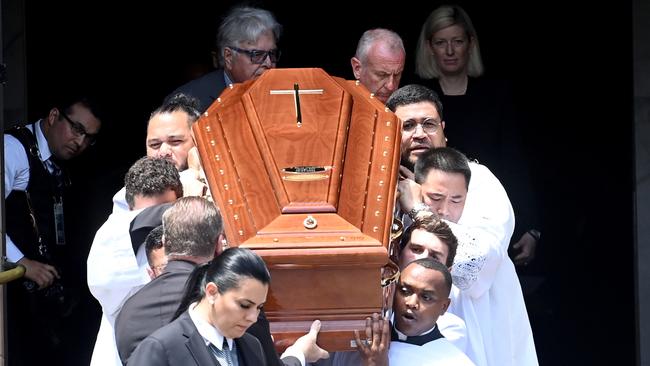
The church’s celebration of Pell’s life was a magnificent event yet evidence of a diminished nation, its culture fragmented and its current secular leaders hiding in fear, unable to pay respects to the life of George Pell, who attained the most senior position in the Catholic hierarchy of any Australian.
In his homily, the Archbishop of Sydney, Anthony Fisher, said of Pell’s character, “some experienced him as demanding, pugilistic or polarising and others as faithful, hospitable and witty”. But the secular reaction to Pell’s death was driven by deeper forces – politicians terrified of offering respect despite Pell being the target of the greatest miscarriage of justice in Australia since World War II and adverse findings by a royal commission that he knew of sexual abuse crimes, findings relying on inference not evidence (there was none).
The hostility of victims and parents of child sexual abuse towards Pell is understandable given the crimes of the church and the desecration of the sacred. Pell should have displayed far more sensitivity towards the victims, but it is time to recognise his innocence of the charges laid against him.
Pell was the target of a preposterous campaign of vilification, charges and conviction. He was subject to a “Get Pell” investigation by Victoria Police, a prosecution that should never have been brought, and a failure by the highest court in Victoria, and received justice only when his case was removed from Victoria and went to the High Court, where a 7-0 judgment found in Pell’s favour.
Even then, the denialists were everywhere. Critics falsely claimed the High Court decision was based on a technicality. Victorian Premier Dan Andrews, having attacked Tony Abbott for visiting Pell in jail, defied the court, saying victims had to be believed – confirming he didn’t believe in justice and a fair trial in Victoria.
When Pell was sentenced, Chief Judge Peter Kidd felt compelled to address the “witch-hunt” or “lynch mob” mentality mobilised against Pell. He said Pell could not be made a scapegoat for failings of the church – yet this was, directly or indirectly, the popular and media assault launched against him.
In his book Gerard Henderson named more than 120 journalists and commentators who engaged over many years in the pile-on against Pell. For years the ABC led the charge in a campaign that was relentless, biased and prejudiced. Cause and effect can never be proved but it is hard to imagine how Pell’s conviction could have occurred without the campaign by the public broadcaster in breach of its statutory obligations.
At the start of the Pell trial, lawyer Father Frank Brennan (who had many theological differences with Pell) said: “This case will be a test of all individuals and all institutions involved.” After his forensic examination of the entire saga, Brennan concluded: “Having followed the Pell proceedings closely, I am convinced that the case did nothing to help bona fide complainants, victims and their supporters.”
Here is the sticking point. What was achieved? What did all the media assaults, the rage, the agony, the incarceration, the institutional failures of police, prosecutors and judges achieve? Pursuing Pell on shoddy evidence in politically and emotionally influenced proceedings has resulted in years of misery for most participants. The lesson is there can be no justice for sexual abuse victims by creating an injustice against Pell.
After his exoneration, Pell said: “My trial was not a referendum on the Catholic Church.”
This has been a double failure – a failure by the church in its handling of child sexual abuse and a failure by the institutions of the secular state in seeking to bring down Pell. The church has confronted its sins. Not so, the secular state. There is next to no public recognition whatsoever of the failings and abuse of power committed by the powerful within our society – police, law, media and politics. None. There is no moral or intellectual accounting, just deceptive leaders.
The Pell legacy will live with the church and our secular institutions for decades to come. In the eulogy to his brother, David Pell thanked the Barwon prison staff for treating George with “dignity and professionalism”, saying his family in Ballarat was not immune from the “evil curse” perpetrated on many children by priests whom he branded as “secretive, deviant and manipulative criminals”. It seems the prison staff extended more dignity to Pell than the secular leaders. The non-attendees at Pell’s funeral included Liberal Party Premier of NSW Dominic Perrottet, himself a Catholic, and Labor Prime Minister Anthony Albanese, who talks frequently about his Catholic upbringing, calling himself a “non-practising Catholic”. A spokesman for Perrottet said he had other business commitments.
Enough. These were decisions of silent disrespect and, in Perrottet’s case with an election looming, cowardice. The leaders did not just insult Pell. Their insult was to the Catholic Church and was understood by the congregation. Opposition Leader Peter Dutton attended, along with John Howard and Abbott, who delivered the finest speech of his life, saying Pell’s great triumph, surely, was to have kept his faith.
Pell was given a farewell for the ages. Apart from World Youth Day in 2008, this was the most magnificent event in the Australian Catholic experience for several decades. It was a statement of strength by the church. St Mary’s Cathedral, designed in Gothic style to match the great medieval cathedrals of Europe, was filled with several thousand mourners, hundreds of priests in attendance and Archbishop Fisher presiding in a service that extended beyond two hours and 30 minutes.
It was an assertion of Western civilisation and the church’s centrality in this history. The mass was sung, the music included Johann Sebastian Bach, Felix Mendelssohn and Edward Elgar, the hymns selected with an eye to Pell’s preferences, with Fisher’s homily invoking Pell’s legacy of four new Catholic tertiary institutions.
It was an assertion of Australian nationalism. Fisher said Pell remained “very much an Australian to the end”. David Pell told us that when George was announced in Rome in 2003 as the next candidate for cardinal the cry rang out: “Aussie, Aussie, Aussie! Oi, Oi, Oi.” George lived a life that “played the ball, not the man” and spent 404 days in solitary confinement for an offence he never committed. Linking the modern fate of the church with its past, Fisher said: “Jesus told his disciples not to be surprised if the world hated them, as it had hated him first.” The church knows it is a target in a world that has lost the civic virtue necessary to hold societies together. But in this new phase of its existence the church has a long experience of oppression on which it can be sustained.
What is the moral of the Pell event? Best look to CS Lewis in The Abolition of Man, when Lewis said rejection of absolute truth would see the unravelling of society. Referring to the “tragic comedy” of our situation heavy with demands for more self-sacrifice and creativity, Lewis wrote: “We make men without chests and expect of them virtue and enterprise. We laugh at honour and are shocked to find traitors in our midst. We live in an age of phony virtue and fabricated honour.” Lewis was prophetic – leadership in our institutions, public and private, is administered by men without chests.


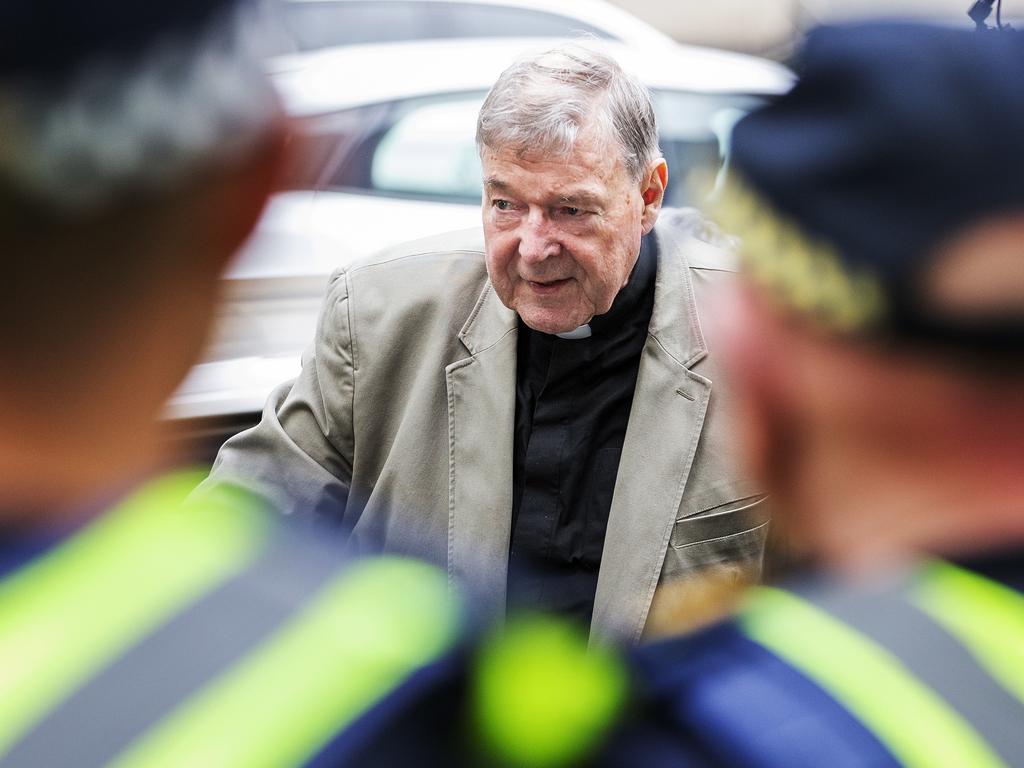
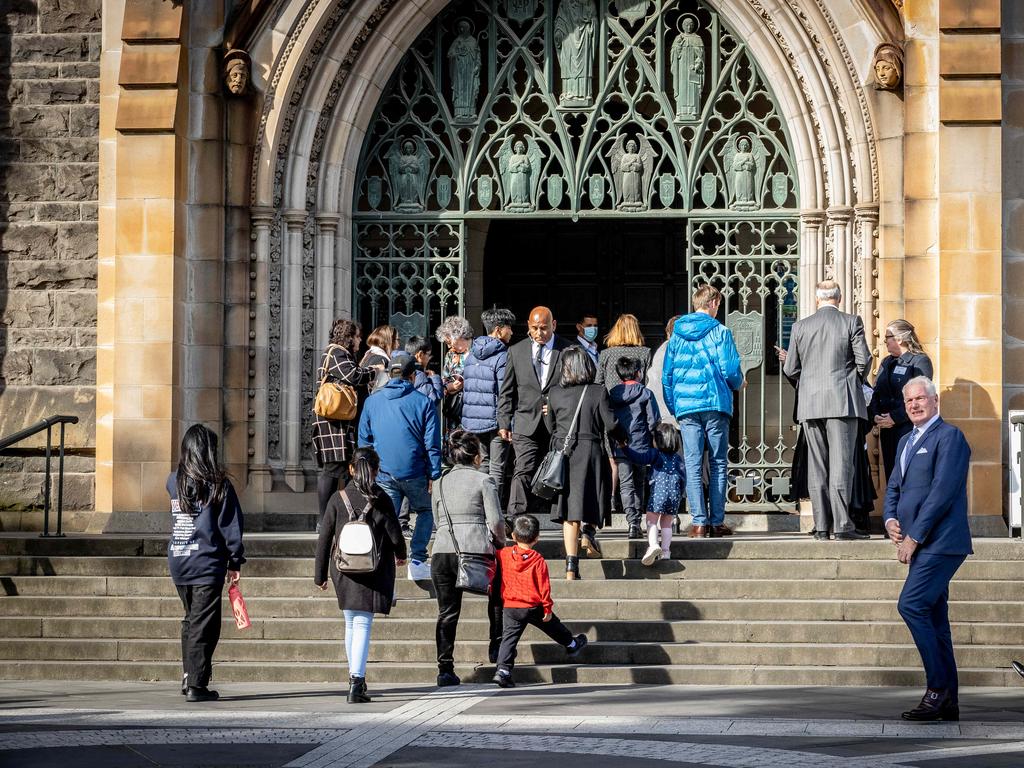
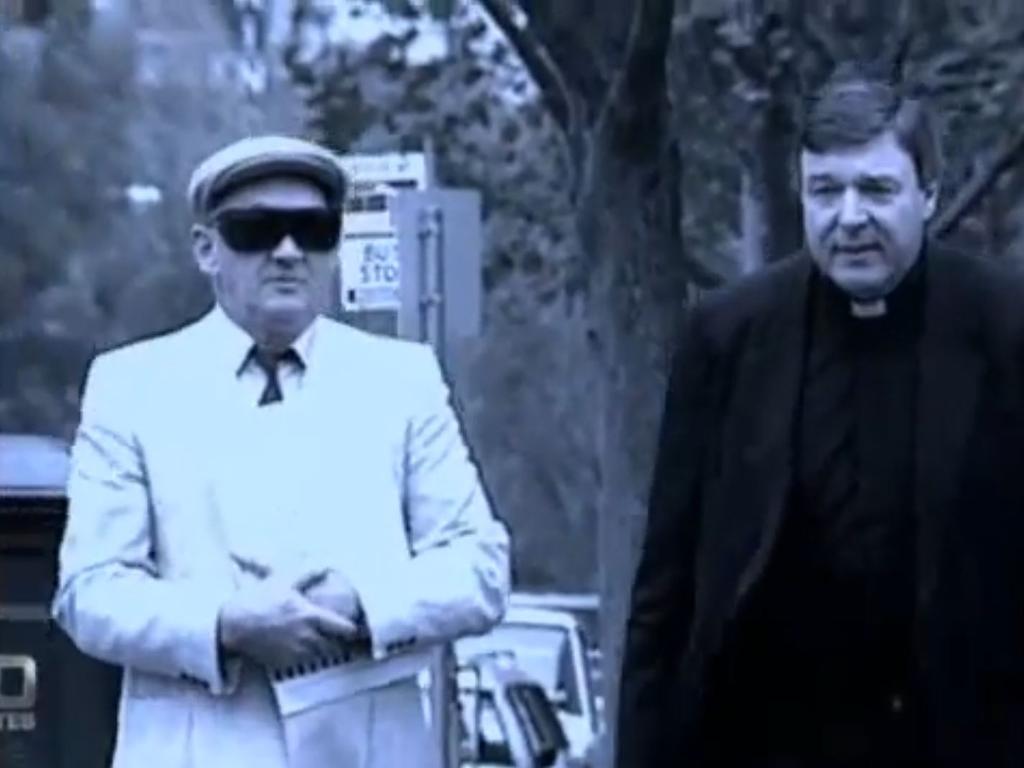
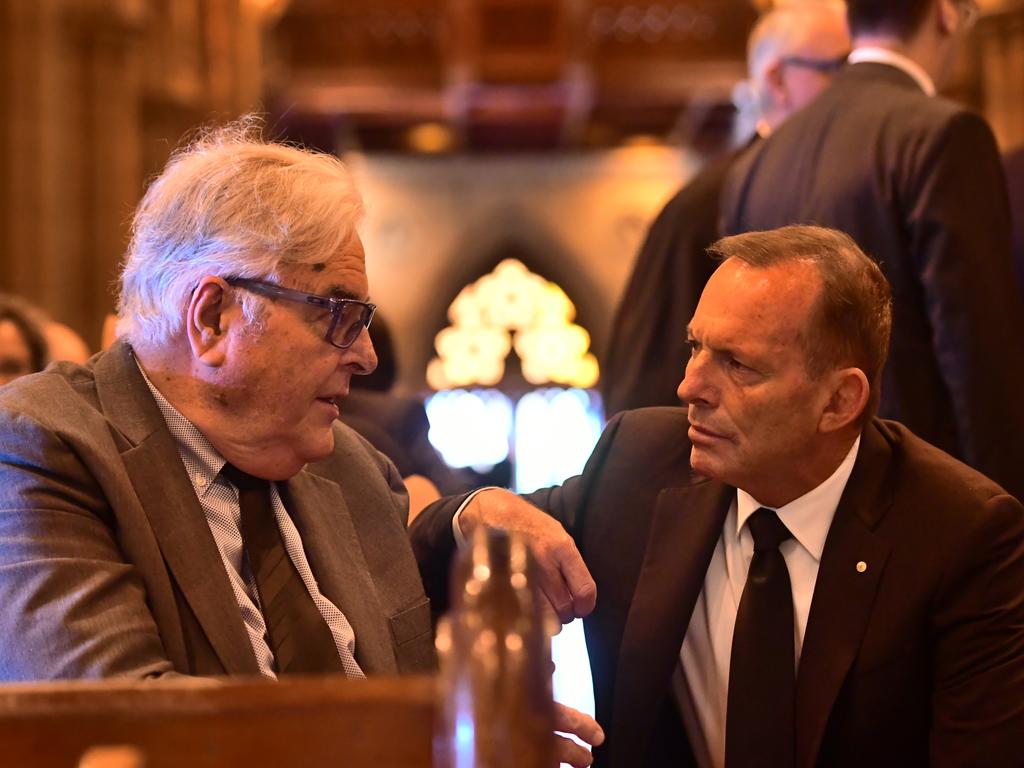


The Pontifical Mass for Cardinal George Pell – a religious event and a public event – was a funeral ritual, a celebration of Catholic resilience but testimony to the now deeply fractured relations between secular power and the Catholic Church.